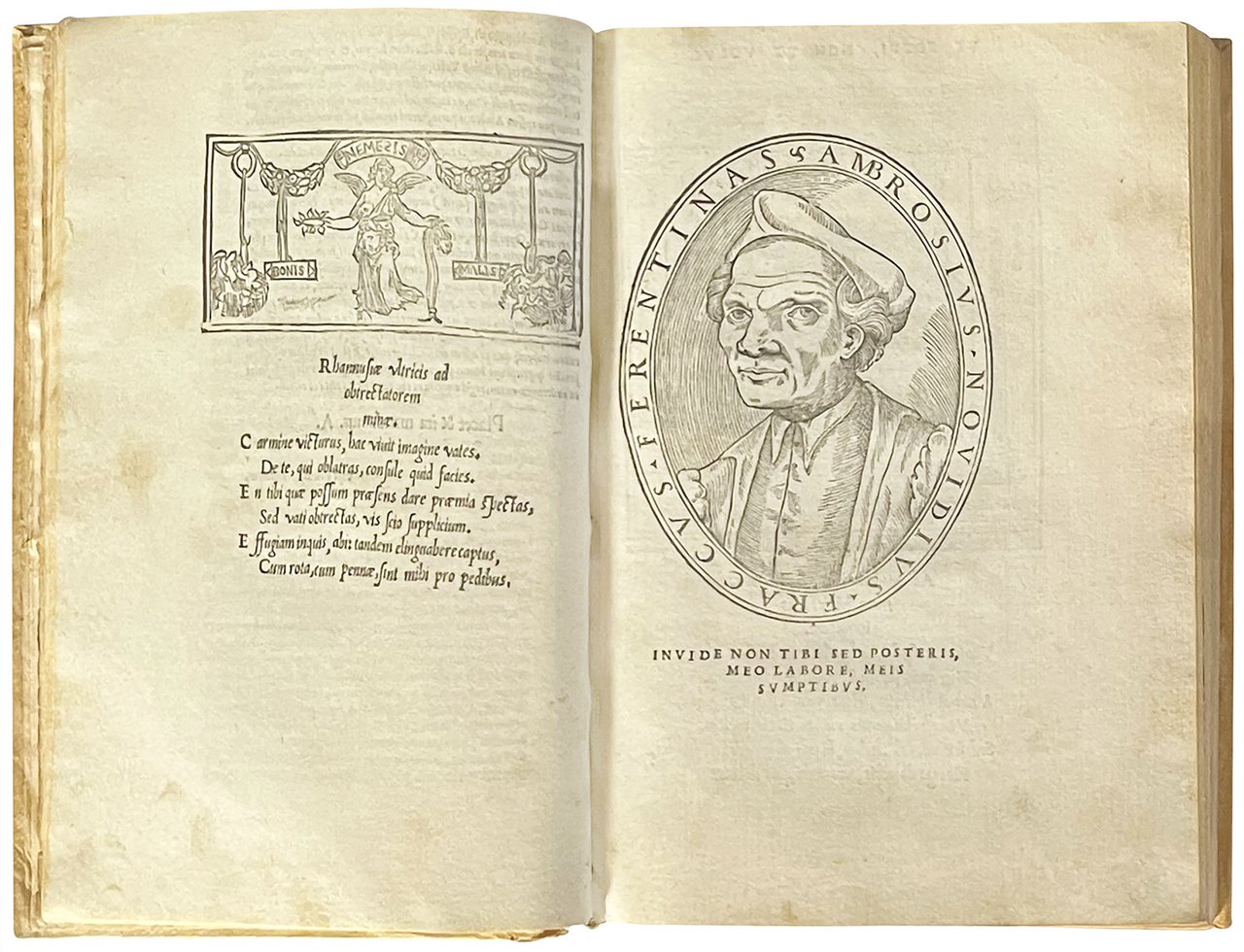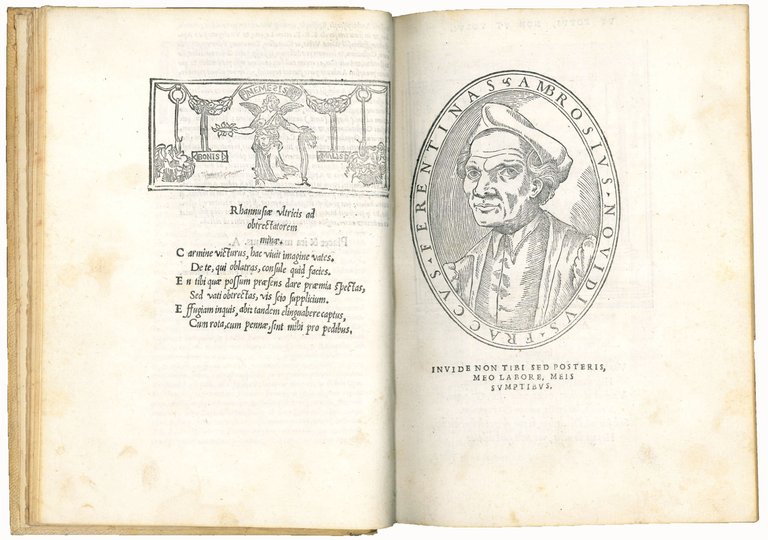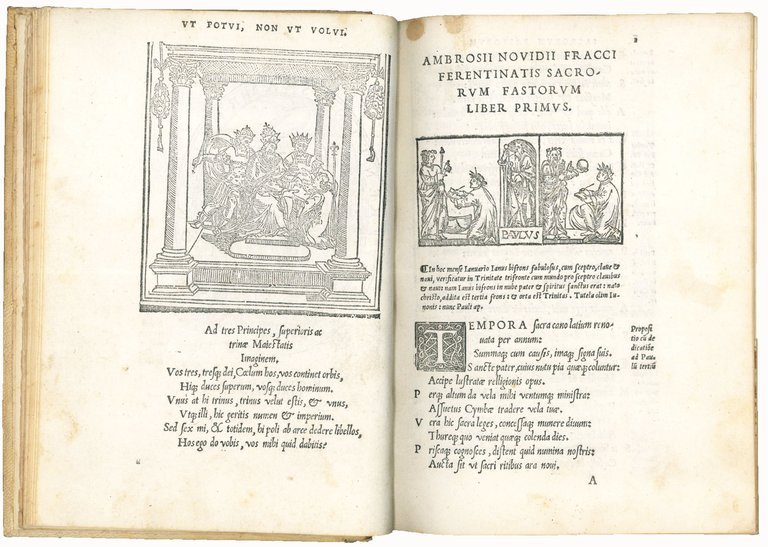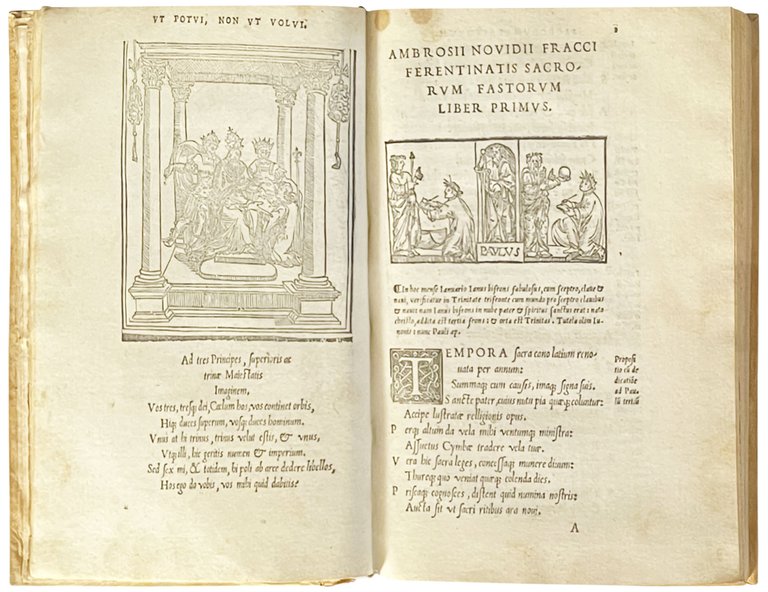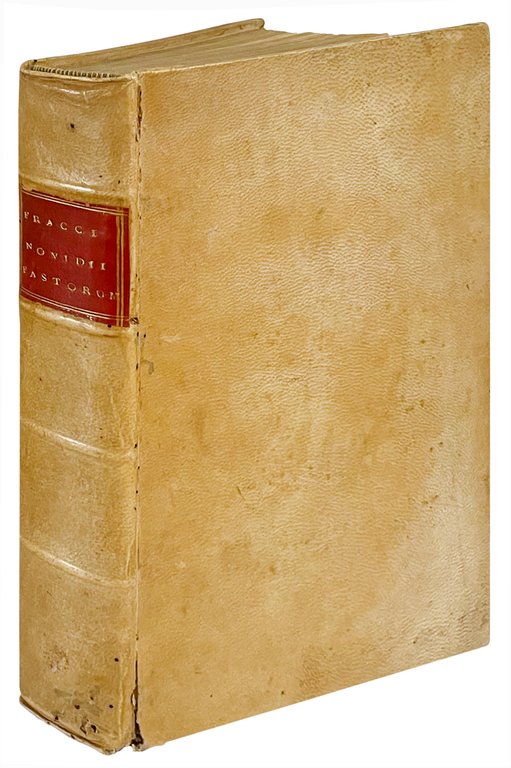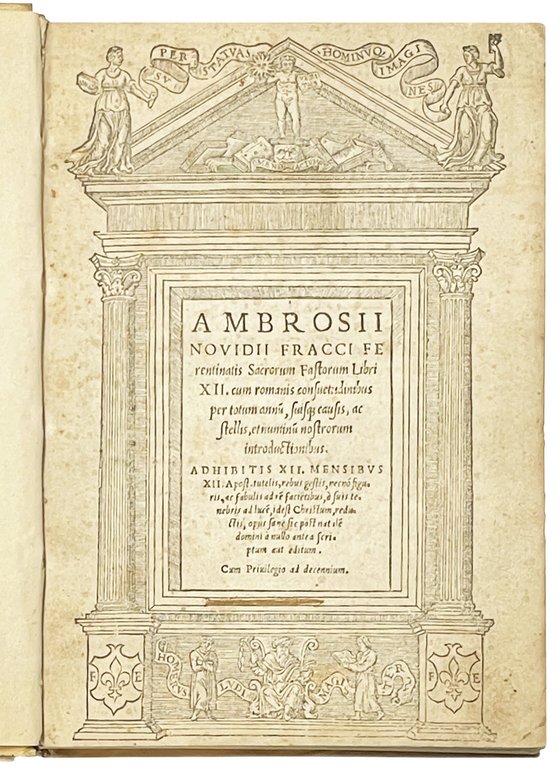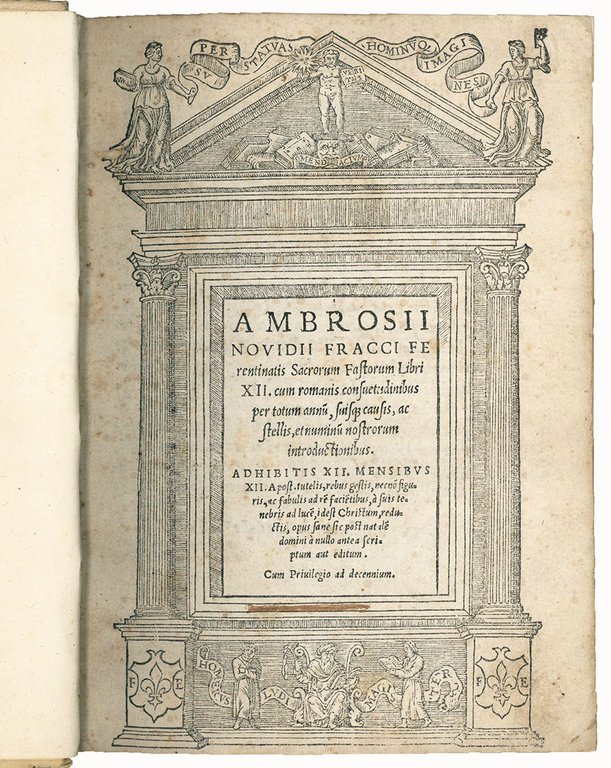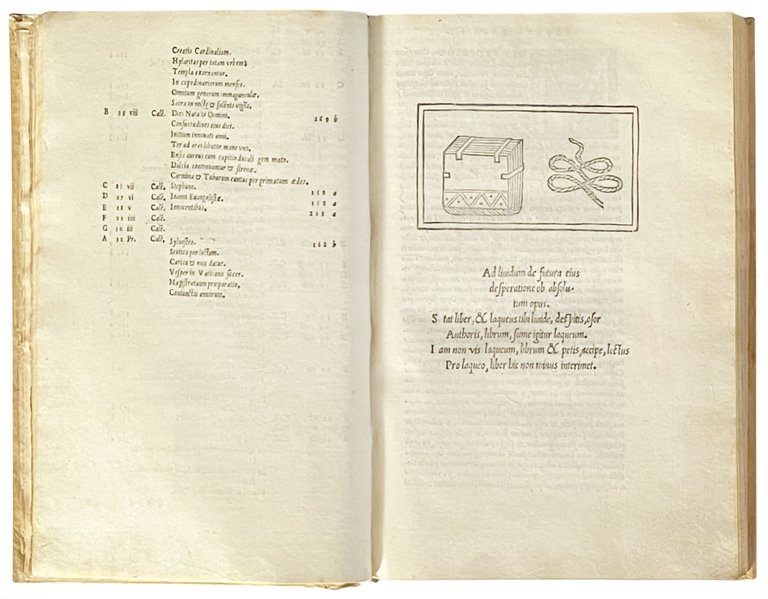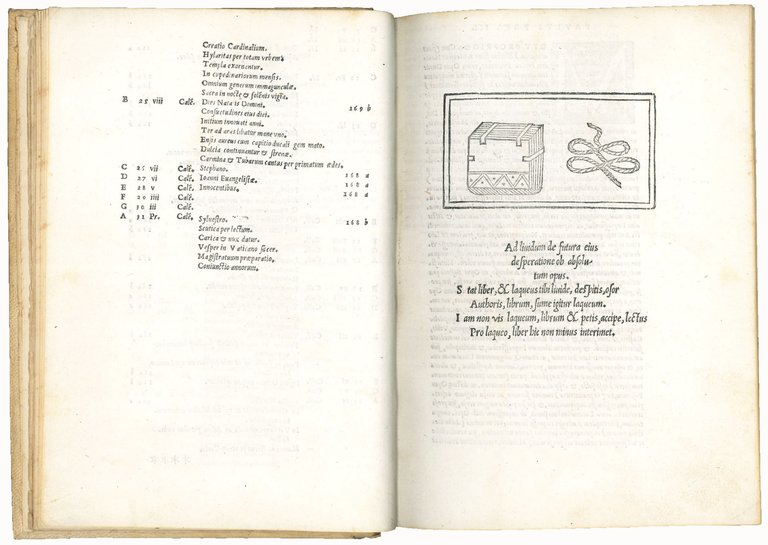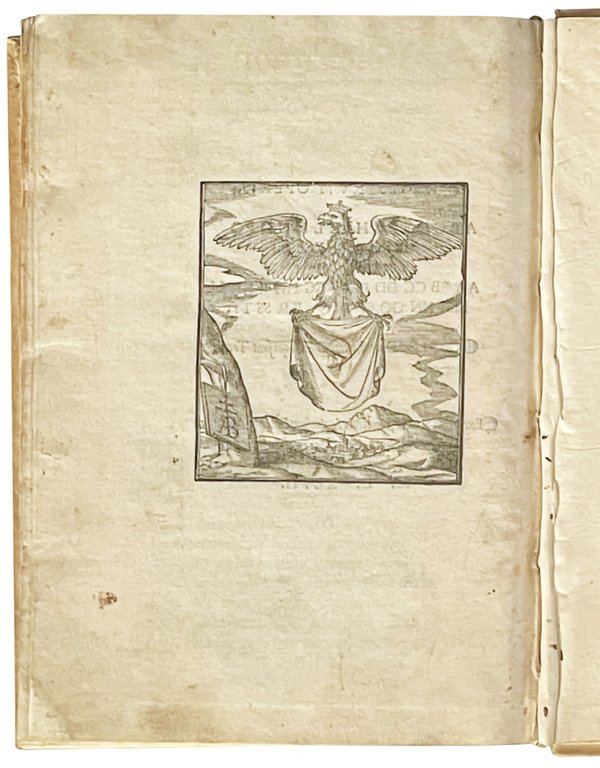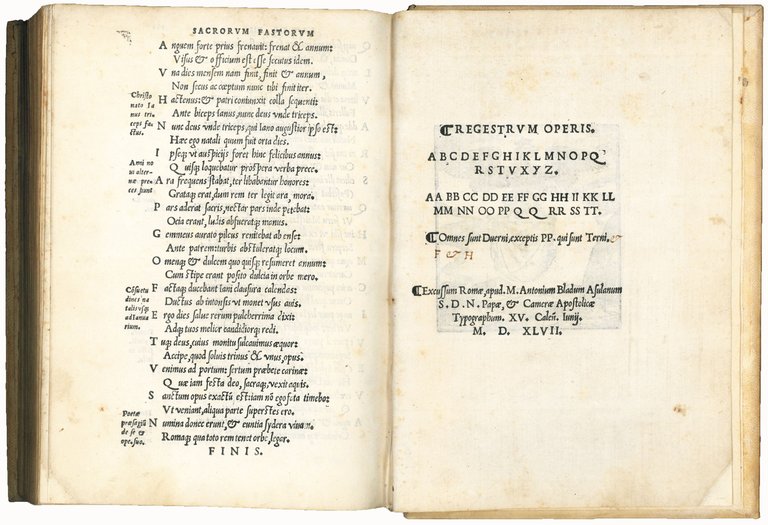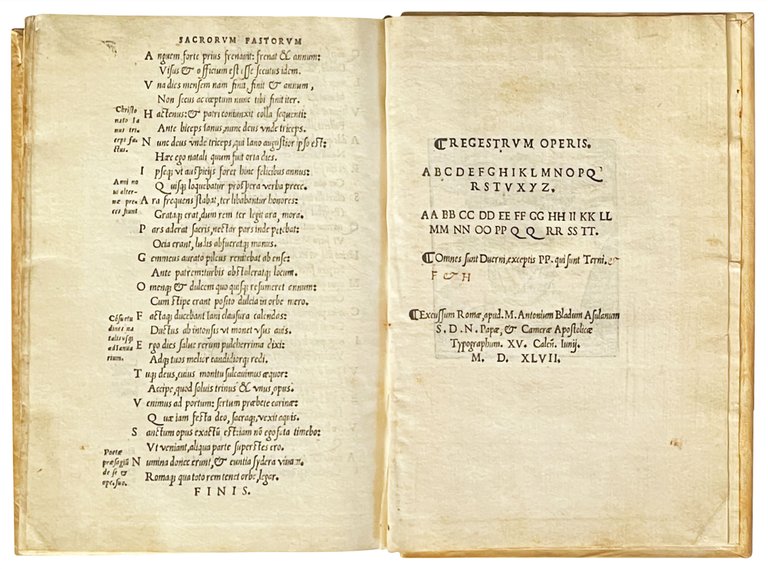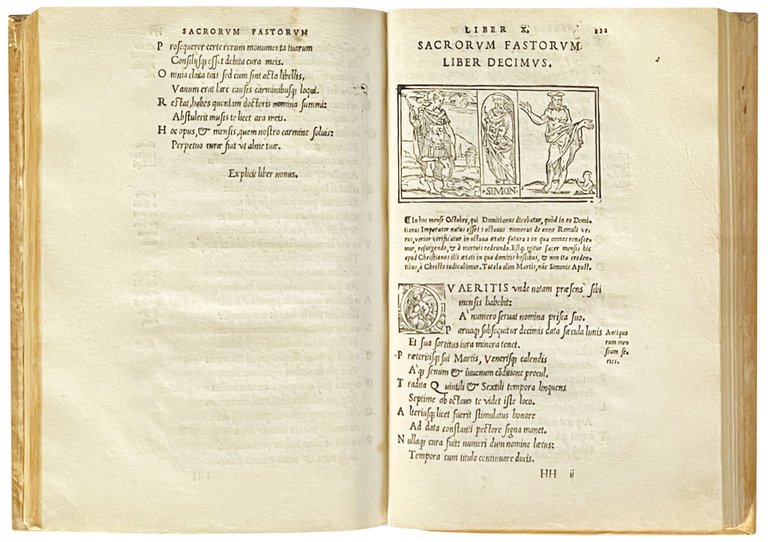Ambrosii Novidii Fracci Ferentinatis Sacrorum fastorum libri XII. cum romanis consuetudinibus per totum annum, suisque causis, ac stellis, et numinum nostrorum introductionibus [...] Colophon: Excussum Romae, apud. M. Antonium Bladum Asulanum S.D.N. Papae, & Camerae Apostolicae Typographum, XV. Calendis Iunij. M.D.XLVIII
Ambrosii Novidii Fracci Ferentinatis Sacrorum fastorum libri XII. cum romanis consuetudinibus per totum annum, suisque causis, ac stellis, et numinum nostrorum introductionibus [...] Colophon: Excussum Romae, apud. M. Antonium Bladum Asulanum S.D.N. Papae, & Camerae Apostolicae Typographum, XV. Calendis Iunij. M.D.XLVIII
Mode de Paiement
- PayPal
- Carte bancaire
- Virement bancaire
- Pubblica amministrazione
- Carta del Docente
Détails
- Année
- 18 May 1547
- Lieu d'édition
- Roma
- Auteur
- FRACCO, Ambrogio Navidio (b. 1480)
- Éditeurs
- Antonio Blado
- Thème
- Quattro-Cinquecento
- Etat de conservation
- En bonne condition
- Langues
- Italien
- Reliure
- Couverture rigide
- Condition
- Ancien
Description
4to (226x160 mm). [16], 1-22, [2], 23-30, [2], 31-169, [1] leaves. Collation: *-****4 A-E4 F6 G4 H6 I-Z4 AA-SS4 TT6. Architectural title border with figures. On the shields on the pedestals of the lateral columns are the arms of Ferentino, Fracco's birthplace. On leaf ****2r is a woodcut of a book and a rope with a quatrain below. On leaf ****3v is a woodcut figure of Nemesis with verse below, facing a full-page medallion portrait of the author on leaf ****4r. A large woodcut on the verso of leaf ****4 shows the author presenting his book to Pope Paul III who has the emperor Charles V and a king (François I?) at either side. With 12 small woodcut illustrations in text, one at the beginning of each book, each in three compartments, with a center figure of a saint and side figures to show the ancient Roman gods and scenes for Christian feast days for the months. One marginal diagram on leaf A2r. Woodcut initials. Register and colophon on l. TT6r. Blado's eagle device on last leaf verso. Italic letter with roman capitals, small italic marginalia. With manuscript corrections throughout the text as probably in all copies. 19th-century stiff vellum, red morocco lettering piece on spine (tiny worm holes along the joint, front joint slightly cracked). Contemporary ownership entry inked out on the title page, later entry (“Juris Caroli Allodi”) on the front flyleaf. First leaves slightly soiled, occasional marginal staining, tears repaired to l. O3 with no loss of text, marginal tear to l. PP3 not affecting the text, all in all a good copy.
First edition, dedicated to Pope Paul III, of this verse text written in imitation of Ovid's Fasti.
Ambrogio Fracco was born around 1480 to a modest family in Ferentino. He was educated in his hometown, embraced the ecclesiastical life and cultivated poetry before traveling to Rome in search of fortune. The appellation “Novidius” (i.e. “novus Ovidius”), which he added to his name, points to Ovid as the Latin poet whose inspiration Fracco felt most strongly and whom he sought to emulate in his works. In Rome, he may have worked as a schoolmaster to earn a living: his compositions are full of allusions to a graceless and miserable existence. The poem in 285 couplets Consolatio ad Romam, printed in 1538 with a dedication to Cardinal Ennio Filonardi, does not prove that Fracco was in the service of the prelate. The date post quem for his death is the edition of the Sacrorum fastorum libri XII (Rome, 1547), the work with which Fracco wanted to bequeath his name to posterity. The work was begun under Pope Leo X and completed under Paul III, to whom it was dedicated. Following the example of Ovid's work, to which it claims to be the Christian equivalent, Fracco's Fasti is intended to describe the sacred rites and recurrences of the calendar. However, the attitude towards pagan deities and rites is not one of condemnation: on the contrary, Fracco, without adopting a precise philosophical interpretation of mythology, welcomes traditions and beliefs foreign to the Christian religion, based on a syncretistic spirit, mostly arbitrary and fanciful, but based on very ancient popular traditions, tolerated and indulged by the Church (cf. F. Pignatti, Fracco, Ambrogio, in: “Dizionario Biografico degli Italiani”, vol. 49, Rome, 1997, s.v.).
Edit 16, CNCE19618; B. Pecci, L'umanesimo e la “cioceria”, Trani, 1912, pp. 250-399; R. Mortimer, Harvard College Library, Italian 16th century Books, Cambridge MA, 1974, I, pp. 287-288, no. 198.
